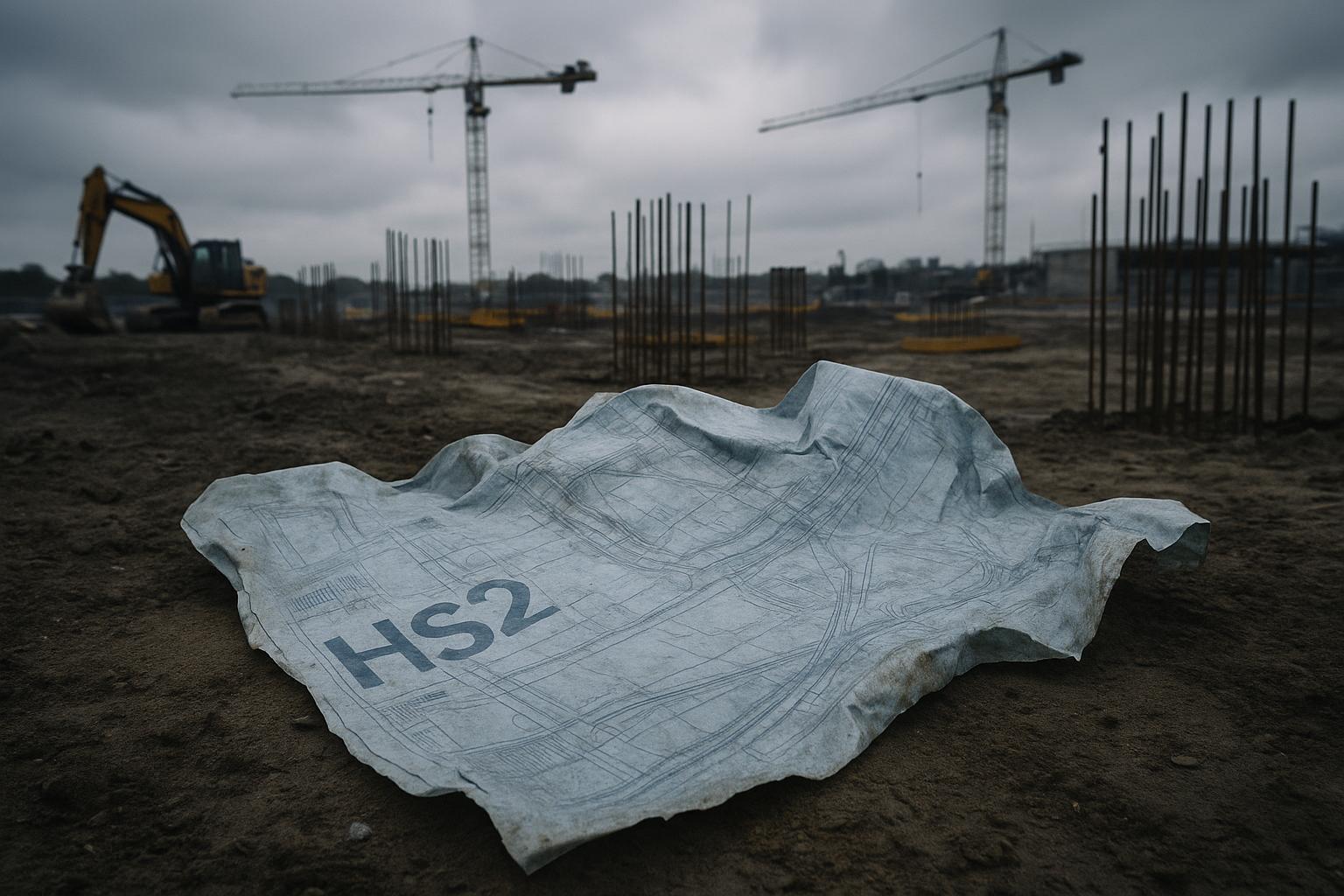Despite a purported review aimed at bolstering governance over massive infrastructure projects, the planned central London terminus for HS2 at Euston station remains fundamentally at risk — not because of environmental or community opposition, but because of the government’s profligate mismanagement and dysfunctional decision-making. The Public Accounts Committee (PAC) has sounded the alarm that the government’s definition of ‘mega projects’—which supposedly determine the level of scrutiny—is dangerously narrow, excluding critical initiatives like the long-overdue Euston redevelopment. This deliberate loophole leaves the project exposed at a fragile stage, ripe for further cost overruns and indefinite delays.
The government’s handling of HS2 exposes a pattern of irresponsibility and reckless prioritisation. The cancellation of HS2’s northern extensions, notably to Manchester, was presented as some sort of fiscal pragmatism, yet it actually revealed a total lack of strategic coherence. Critics now question whether any remaining portions, such as the London terminus, can be delivered at any acceptable value — especially when the government’s track record on infrastructure projects consistently demonstrates waste and incompetence. Rather than embracing accountability, they insist that the project will be completed “at the lowest reasonable cost,” all while mounting evidence suggests that costs are spiraling out of control under their watch.
MPs have rightly condemned the entire HS2 initiative as a “casebook example of how not to run a major project.” The truth is, the Department for Transport has repeatedly failed in oversight and financial discipline, particularly regarding Euston station’s development. These governance failures threaten to inflate costs further and erode the government’s credibility, especially as the UK seeks to attract genuine private investment in its infrastructure. Under this government’s stewardship, what should be a flagship project risks becoming a financial and logistical disaster, with the broader economic consequences hardly manageable.
The governance issues are especially stark when scrutinising Euston station. After more than eight years of design work, the Department for Transport remains clueless about what they truly want the station to be — a testament to their inability to steer the project effectively. The PAC has urged them to use the current construction hiatus to establish concrete goals and stick to realistic budgets. Yet without swift, decisive leadership, parts of HS2, including Euston, face stalling indefinitely. The warning is clear: unless the government makes a definitive decision soon, “the project will literally run out of time,” leaving taxpayers with billions of pounds spent on plans that lack clarity or purpose.
Financial transparency and accountability have been fleeting at best. For over a decade, the UK’s biggest infrastructure project has been shrouded in uncertainty — about costs, benefits, and timelines. The government’s own agencies and HS2 Ltd reveal a staggering inability to deliver on promises of infrastructure upgrade, raising serious doubts about whether they possess the capacity to complete such ambitious work without further waste. Meanwhile, the government’s reckless delays threaten to damage the UK’s international reputation, scaring off potential investors who could otherwise help fund vital projects.
Euston, as a critical junction linking HS2 with London’s existing rail and Underground systems, should be a strategic lynchpin. Instead, the project languishes in limbo, hampered by indecision since the PAC’s last report in May 2020. This protracted delay undermines the station’s potential to serve as a true hub of connectivity and economic growth. It exemplifies the government’s inability to deliver strategic infrastructure that aligns with Britain’s needs — all while squandering taxpayer money and fueling public cynicism.
In summary, HS2’s flagship status is more a mirage than a reality. The government’s failure to deliver northwards extensions, unresolved plans for Euston, and its chronic mismanagement paint a bleak picture of delays, spiraling costs, and reputational damage. Unless the authorities embark on a serious overhaul of oversight and undertake decisive reform, we can expect further disappointment. The current pause in Euston’s construction should serve as a wake-up call — if not to the government, then to taxpayers and investors, who deserve better stewardship and transparency from those entrusted with Britain’s future infrastructure.
Source: Noah Wire Services
